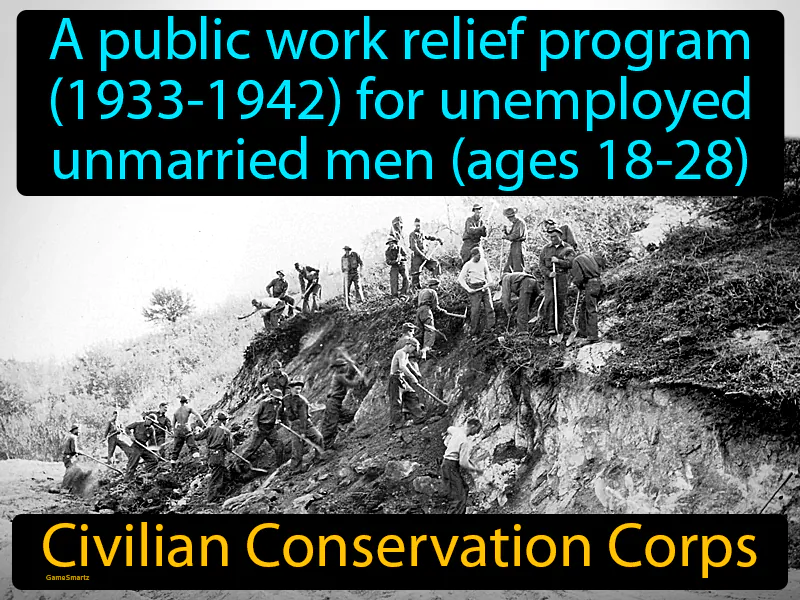Civilian Conservation Corps
Civilian Conservation Corps: Easy to understand
The Civilian Conservation Corps (CCC) was a crucial part of President Franklin D. Roosevelt's New Deal, providing jobs during the Great Depression while focusing on natural resource conservation. It highlighted the idea that government intervention could help stabilize the economy and improve public lands, a topic still relevant today as governments consider how to address unemployment and environmental challenges. By planting trees, building parks, and improving infrastructure, the CCC left a lasting impact on America's landscape, much like how current environmental programs aim to combat climate change and preserve natural spaces. This historical event connects to modern life by showing how public works can create jobs and protect the environment, which is important as communities today face similar issues. For an average person, these ideas translate into cleaner parks, healthier forests, and job opportunities in conservation, improving quality of life and community well-being.

Practice Version

Civilian Conservation Corps: A public work relief program 1933-1942 for unemployed unmarried men ages 18-28. Civilian Conservation Corps. The Civilian Conservation Corps was a New Deal program that provided jobs and environmental conservation projects during the Great Depression.